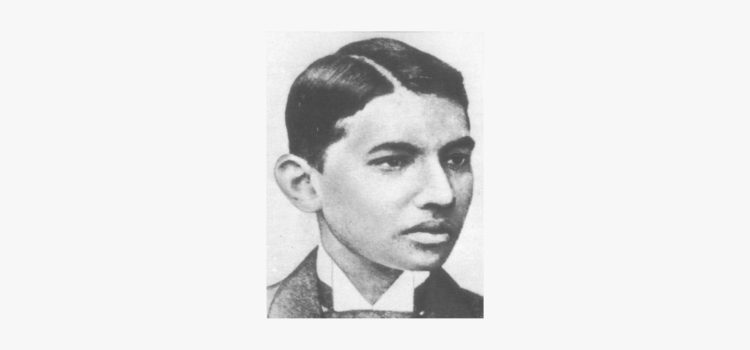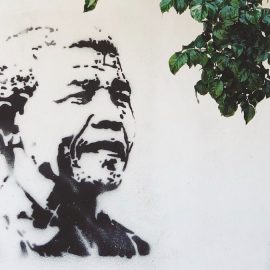

This article is an excerpt from the Shortform book guide to "The Story of My Experiments with Truth" by Mahatma Gandhi. Shortform has the world's best summaries and analyses of books you should be reading.
Like this article? Sign up for a free trial here.
What challenges did Mahatma Gandhi face before leaving India for England? How did his experiences in London shape his future lifestyle?
Gandhi’s journey to England was a pivotal moment in his life. He encountered obstacles from his family and community but persevered. His time in London presented new challenges, including maintaining his diet and living frugally.
Keep reading to discover how Mahatma Gandhi’s England years laid the foundation for his future leadership and simple living philosophy.
Mahatma Gandhi in England
For Mahatma Gandhi, England offered a springboard toward an honorable future. In 1887, he finished his high school education in India but wasn’t sure about his next steps. A family friend suggested that he go to England and study law. This would secure him a high-earning and respectable career. Gandhi says he felt both scared and thrilled at the idea of going abroad. But two major obstacles stood in the way.
First, Putlibai didn’t approve of her son living abroad for several years. She was worried that he’d be tempted to drink alcohol, eat meat, and have relationships with women. To calm her fears, Mohandas took an oath to abstain from those vices and she gave him her blessing.
Then, the caste Gandhi’s family belonged to forbade him to travel because they followed religious prohibitions against foreign travel. He decided to go despite their prohibition, and the caste expelled him from the group. (Shortform note: In India in the late 19th century, a widespread caste system categorized people into a hierarchy of varnas, or social classes. Gandhi and his family belonged to the Vaishya (merchant and landowner) caste, the third highest of the main four varnas. The members of these varnas all rank above the Dalits, or “untouchables”—a social class that falls outside of the caste system.)
| The Soft Power of Gandhi’s Self-Restraint The challenges Gandhi faced as he pursued his goal of higher education in England illustrate how he wielded soft power to achieve his aims. In Quiet, Cain argues that Gandhi was extraordinarily effective in wielding soft power, the quiet persistence in building support through day-to-day personal interactions. According to Cain, Gandhi’s shyness and fear of authority figures evolved into self-restraint—the ability to choose his battles wisely and avoid conflicts that could undermine his leadership and the support of his community. This allowed him to nurture his connection with his followers and build support even through periods of controversy and conflict. The two obstacles Gandhi describes arguably illustrate this. He exercised self-restraint around food, alcohol, and women to fulfill the vow he swore to his mother, a key authority figure in his life. Then he exercised self-restraint by accepting his caste members’ decision to expel him. Because of his nonresistance, the caste left him alone and later even helped in his political work. Had Gandhi fought back, he and caste leaders might have been in perpetual conflict. Cain explains that Gandhi’s soft power became a hallmark of his life. Because he stayed focused on his ultimate goal, rather than being diverted by unnecessary fights, Gandhi’s self-restraint became one of his greatest assets by continuously protecting his relationship with his followers and community. |
Once in London, Gandhi remembers that he continued to face formative challenges related to his desired lifestyle.
Finding vegetarian meals—Gandhi says he often starved because he couldn’t get filling vegetarian meals in London. He also had to defend his decision whenever people insisted he eat meat. He eventually found vegetarian restaurants and learned to cook.
Living on a tight budget—He spent a lot of money trying to fit into London society, including investing in an entirely new wardrobe. However, he soon had to cut back. He moved to a modest apartment, began walking instead of using public transportation, and took meticulous notes of all the money he spent. These habits stayed with him all his life.
(Shortform note: These challenges set the stage for what would become Gandhi’s signature simple living: austere accommodations, simple and traditional clothing, and vegetarian meals he could easily prepare himself. The ashram he founded later in life—where he was living when he wrote his autobiography—taught families to live a simple, self-sufficient lifestyle where even the furniture they slept on and the clothes they wore were made by themselves or others in the community.)

———End of Preview———
Like what you just read? Read the rest of the world's best book summary and analysis of Mahatma Gandhi's "The Story of My Experiments with Truth" at Shortform.
Here's what you'll find in our full The Story of My Experiments with Truth summary:
- Gandhi’s life story from childhood until adulthood
- How Gandhi became a world-famous activist
- A look at Gandhi’s commitment to a nonviolent, austere lifestyle






